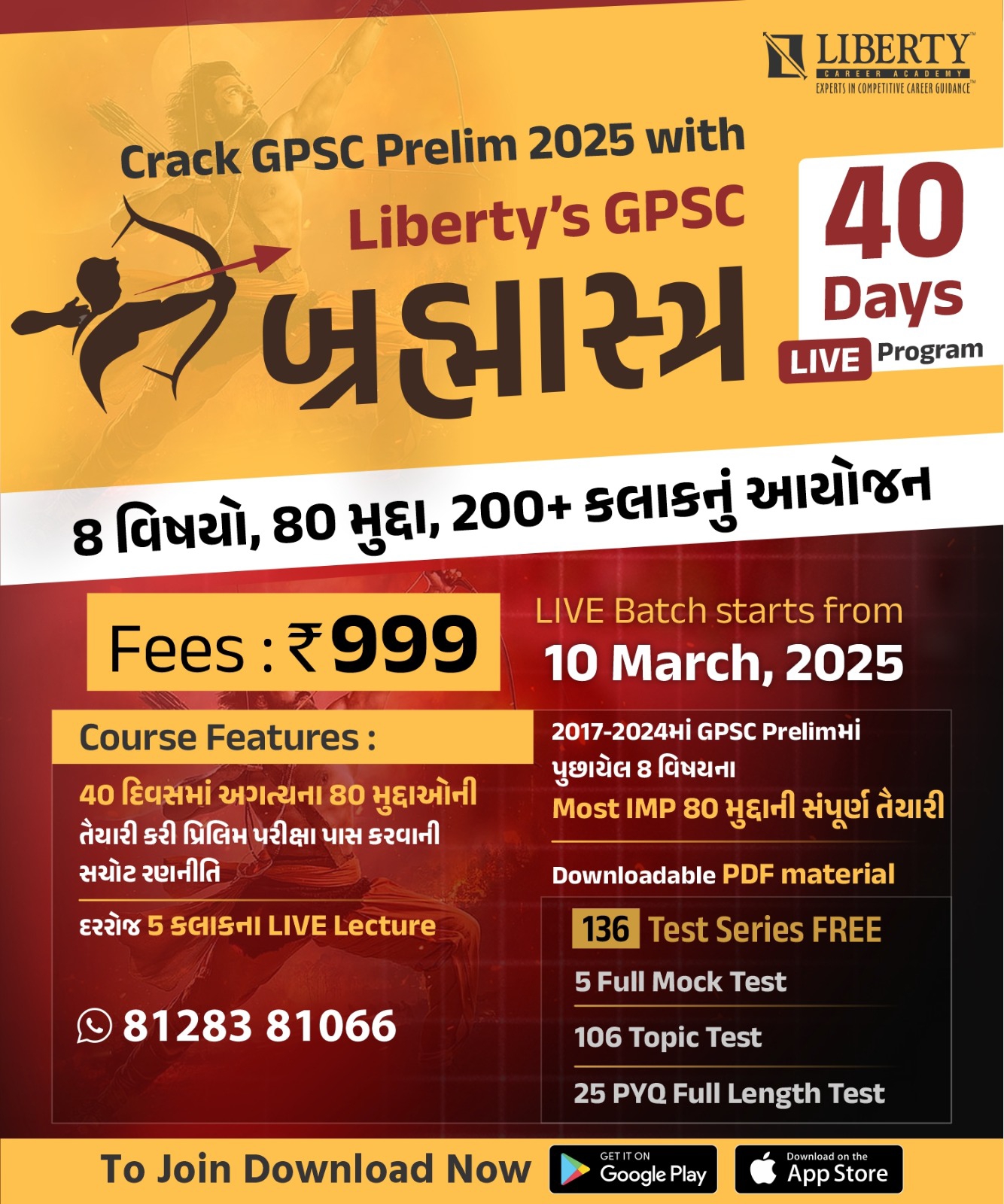
UPSC Online Batches- Prelim + Mains + Interview
TRENDING-
Batches : GS FOUNDATION PRELIM CUM MAINS COURSE, UPSC-IAS/IPS Coaching (1 year) English/Hindi -Offline/Online, UPSC-IAS/IPS Coaching (2 year) English/Hindi, UPSC-IAS/IPS Coaching (3 year) English/Hindi, upsc landing page, UPSC main page, UPSC English Medium Online Course- With Book- Online Batch 212, UPSC DLP Gujarati Medium Online Course- With Book & Without Book, UPSC DLP English Medium Online Course- With Book & Without Book, UPSC- DLP Guj Medium- Without Book- Online Batch 216
Union Public Service Commission - About UPSC
IAS / IPS / IFS / IRS / Other Allied Services
CSE is a national competitive examination in India
What is UPSC Course?
The Civil Services Examination (CSE) is a national competitive examination in India managed by the Union Public Service Commission for recruitment of the Government of India, along the Indian Foreign Service, Indian Police Service, and Indian Administrative Service.
UPSC examination, is conducted in three phases: a preliminary examination consisting of two objective-type papers (General Studies Paper I and General Studies Paper II.
Also generally known as Civil Service Aptitude Test, and a main examination consisting of nine papers of conventional (essay) type, in which two papers are qualifying and only marks of seven are counted followed by a personality test. Get it here in straightforward and simple language information about UPSC course.
UPSC Exam Eligibility Criteria
Who can apply for this post?
UPSC releases the UPSC Exam Eligibility criteria in the notification. Broadly, you need to qualify the below-mentioned parameters in order to apply for the IAS Exam or the UPSC Civil Services Examination.
|
UPSC/IAS Age Limit |
21 to 32 years |
|
UPSC Age relaxation |
As per category (mentioned below) |
|
Educational qualification for UPSC-Civil Services |
Graduation from any recognized university |
|
Nationality |
For the IAS, IPS - Must be Citizen of India(Please refer UPSC Notification for other position) |
Age Criteria : Every Candidate appearing at the examination shall be permitted six attempts for general category (32 Years Age Limit), for SC and ST no attempts limit (37 Years Age Limit), for OBS nine attempts (35 Years Age Limit) and for PWD no attempts limit (42 Years Age Limit).
Minimum 21 years should be completed which will depend on the 1st August of that year
Civil Services Exam is mainly conducted in three stages Prelims, Mains and Interview. The general introduction of which is as follows.
The first phase of the IAS Exam is UPSC Preliminary Examination which is the screening test and thus is qualifying in nature. The score obtained in the UPSC Prelims exam is not calculated in the final merit. However, the score in GS Paper-I is essential to determine the cutoff of the UPSC Prelims Exam. The IAS Prelims Exam paper consists of two papers that are objective-type MCQ-based as opposed to UPSC Civil Services Mains Exam. The UPSC Mains Exam is a descriptive exam consisting of nine papers.
In this article, we will discuss what is the
UPSC Exam Pattern
We will discuss what is the UPSC exam, eligibility, IAS exam syllabus, and other important details related to IAS Exam.
|
EXAM |
Exam Month(Gen.) |
Subject |
Marks |
UPSC Entrance |
June |
Paper - I & II |
Paper 1 - 200 |
UPSC Mains |
October - November |
G.S. (Paper - 1) |
250 |
UPSC Interview |
March - April |
Personality Test |
275 |
|
Medium of exam: Mains Exam can be Written in Hindi / English / Gujarati |
|||
|---|---|---|---|
Some of the Popular UPSC subjects are Anthropology, Sociology, Public Administration, History, Geography, Law, and Other (Click to know more for Syllabus and Material of Prelims). UPSC Civil Services Optional Subjects/Optional List for UPSC. Which Is The Best Optional Subject For UPSC · Sociology · Law · and Other (Click to know more for Syllabus and Material of Mains).
Preliminary Exam:
The first stage of Civil Services Examination is called Preliminary Examination. It is purely objective in nature, wherein for each question one has to select the correct option from the four possible options (a, b, c and d).
Civil Services Preliminary Exam is of total 400 marks.
At present the preliminary examination consists of two question papers.
- General Studies-1 (GS) (100 Questions, 200 Marks)
- General Studies-2 (CSAT) (80 questions, 200 marks)
General Studies-II is in the form of qualifying paper. In which 33% marks must be obtained.
In both the question papers, the system of 'Negative Marking' is implemented under which if 3 answers are wrong, 1 mark equal to 1 correct answer is deducted.
The cut-off in preliminary examination is determined only on the basis of first paper i.e. General Studies-1.
Candidates from 12 to 15 times the total number of seats are called for the main examination based on the marks obtained in General Studies-1.
The objective of preliminary examination is only to select few serious and suitable candidates from among all the candidates and the main examination is conducted among those selected candidates.
Main Exam:
The second stage of Civil Services Examination is called 'Main Examination'.
Candidates who qualify the preliminary examination are invited to appear for the main examination usually during the month of October-November.
The main examination is of total 1750 marks out of which 1000 marks are earmarked for general studies (4 papers of 250-250 marks), 500 marks for one optional subject (2 papers of 250-250 marks) and 250 marks for essay.
The main examination carries 300-300 marks for both papers of 'qualifying' nature (English as well as Hindi or any language included in the 8th Schedule of the Constitution), with a minimum qualifying mark of 25% (75 marks). The marks of these question papers are not included in the final merit.
The question papers of the main examination are published in both English and Hindi languages, although candidates are allowed to answer in any of the 22 languages included in the 8th Schedule of the Constitution.
Significantly, where the preliminary exam is purely objective type, the mains exam asks descriptive questions with different word limits. These questions do not involve choosing an answer from different options but writing in one's own words. This is the reason why good writing style is considered very important to succeed in mains exam.
Interview:
The final and important stage of civil service examination is called Interview.
Candidates shortlisted in the main examination usually have to appear for an interview before the commission in the month of April – May.
It neither provides a correct answer option as in the preliminary exam nor does it have a self-selecting facility like some of the mains exam papers. Each question is required to be answered and you may be asked a counter question for each answer. Every wrong or misleading answer incurs the disadvantage of 'Negative Marking' and unlike the first two phases of the examination there is no fixed syllabus for this either. Any question that can be thought of in the world is a part of this syllabus.
275 marks have been fixed for interview in civil service exam conducted by UPSC. Marks prescribed for this stage are necessarily less as compared to mains exam marks (1750 marks) but these marks have a special contribution in final selection and posting.
During the interview the personality of the candidates is tested in this stage, in which oral question is asked by the members of the interview board at the designated place in the commission, which the candidate has to answer orally. This process usually takes 40-50 days depending on the number of candidates.
The merit list is finally prepared on the basis of total marks obtained in the main examination and interview.
1. Why UPSC / IAS exams?
UPSC / IAS is the one of the most coveted exams in India. It is regarded as one of the toughest exams of the world crack.
The highest government job in the bureaucracy is civil services.
2. Functions of an IAS Officer?
Collection of revenue and function as Courts in revenue matters, Maintenance of law and order, function as Executive Magistrate, Function as CDO / DDC, Supervision of implementation of policies of State Government and Central Government

































.jpg)
.jpg)
.jpg)
.jpg)
.jpg)
.jpg)

































































.jpg)
.jpg)



_2026-27_-_Jiv_Vigyan_-_TL.jpg_(2).jpeg)

.jpeg)

 98988 56777
98988 56777